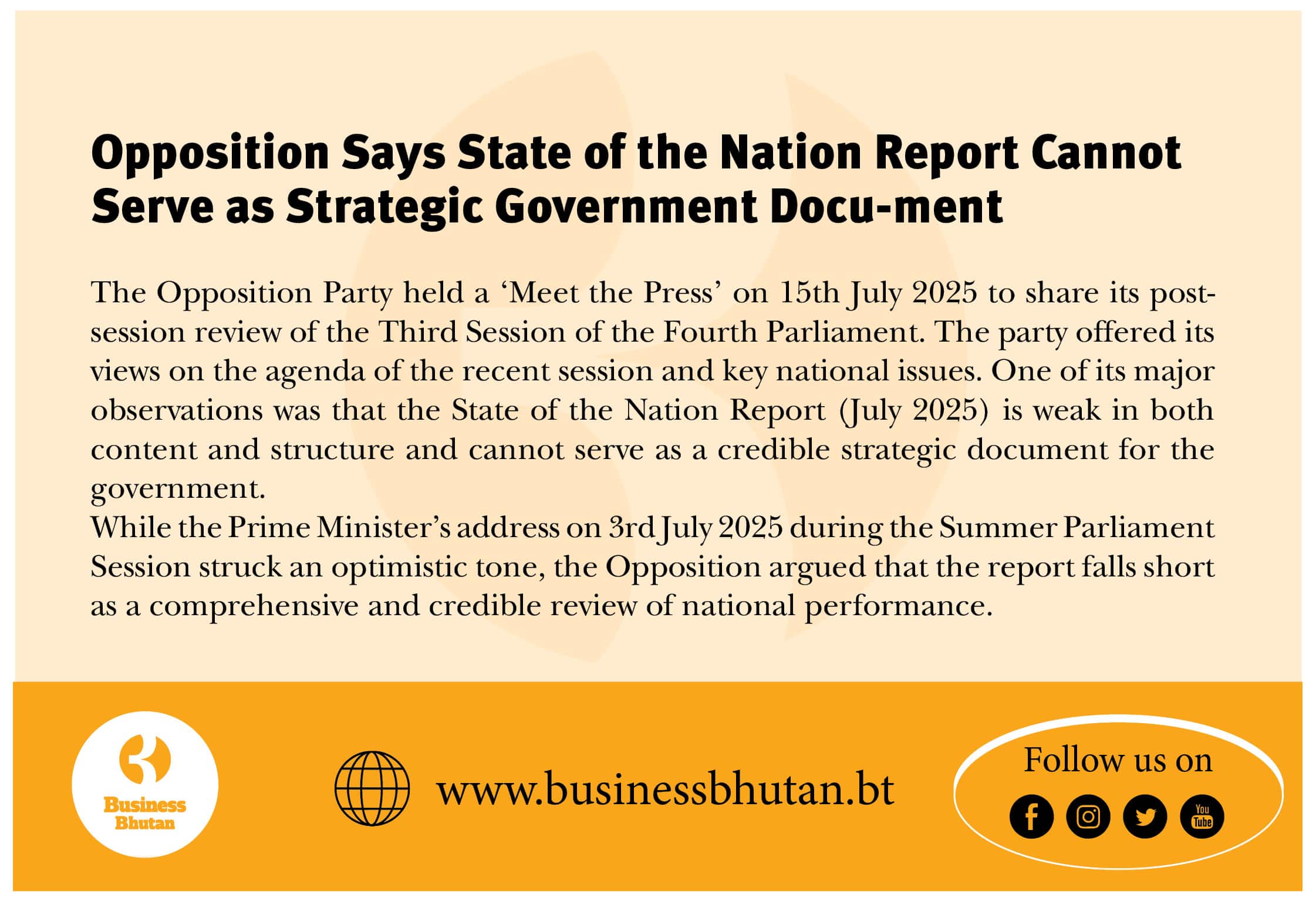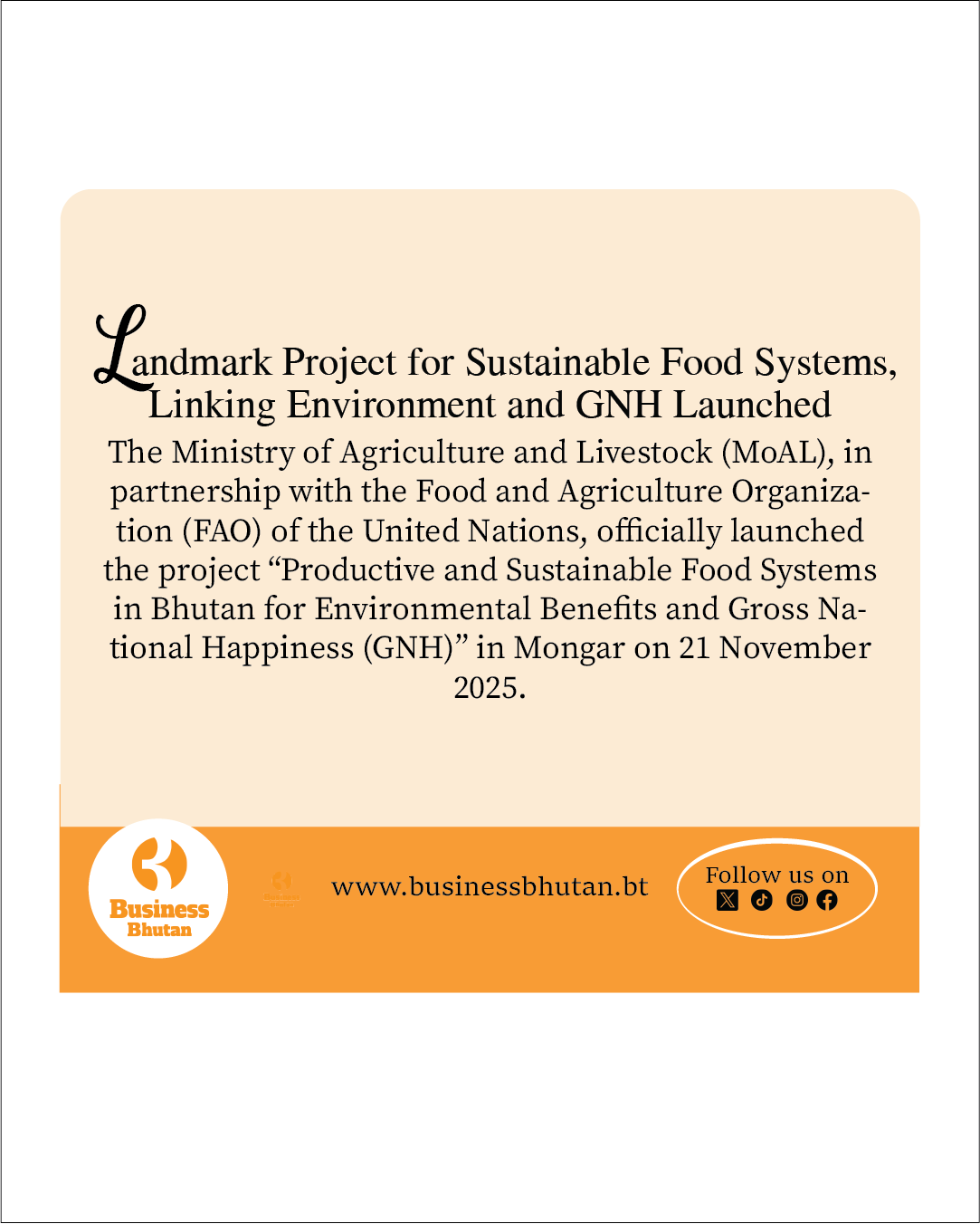The Opposition Party held a ‘Meet the Press’ on 15th July 2025 to share its post-session review of the Third Session of the Fourth Parliament. The party offered its views on the agenda of the recent session and key national issues. One of its major observations was that the State of the Nation Report (July 2025) is weak in both content and structure and cannot serve as a credible strategic document for the government.
While the Prime Minister’s address on 3rd July 2025 during the Summer Parliament Session struck an optimistic tone, the Opposition argued that the report falls short as a comprehensive and credible review of national performance.
Lack of Critical Self-Assessment and Analytical Depth
The Opposition stated that the report takes on a celebratory and promotional tone but lacks honest reflection on underlying challenges. While it highlights broad progress in areas like GDP growth and life expectancy, it largely ignores critical issues such as rising inequality, the widening urban-rural divide, and growing regional disparities. The report celebrates democratic gains but fails to address concerns about weakening local governance, declining public participation, and increasing political disengagement.
Inadequate Focus on Youth Unemployment and Workforce Challenges
One of Bhutan’s most pressing issues – youth unemployment- receives only passing mention. The Opposition contends that despite improvements in literacy and education, there remains a mismatch between graduates and job market demands. The growing outmigration of skilled youth, or brain drain, continues due to a lack of viable opportunities at home, leaving many educated young people underemployed and disillusioned. The Opposition also noted that the private sector, which has significant potential for job creation, remains stagnant due to limited support for startups and enterprise development.
Although the attrition of experienced public servants is acknowledged, the report does not propose concrete measures to understand and address this problem in depth. The Opposition called for comprehensive research to identify the root causes of migration and develop effective solutions, such as vocational training, apprenticeships, incentives for youth entrepreneurship, and stronger support for private sector growth.
Overemphasis on Outmigration, Underplaying Deeper Structural Constraints
While the report highlights outmigration as a major concern, the Opposition said it overstates its role while ignoring deeper structural barriers. These include a weak, over-regulated private sector; a rigid and inefficient bureaucracy; declining investor confidence due to policy inconsistency; poor inter-agency coordination; and persistent corruption and red tape, which stifle innovation and erode public trust. The report should have focused more on how to tackle these fundamental constraints instead of merely acknowledging outmigration as an existential threat.
Vague Economic Strategies and Lack of Implementation Details
The Opposition also criticised the government’s flagship economic frameworks, the 21st Century Economic Roadmap and the 10X Vision – as appealing in concept but lacking operational clarity. The report provides no sectoral breakdowns, concrete timelines, budget allocations, or monitoring mechanisms. It does not clearly define the private sector’s role in driving growth and transformation, nor does it offer plans for regulatory reform, improved access to finance, or SME development.
Scattered Sectoral Priorities and Poor Integration
The Opposition pointed out that sectoral priorities are fragmented and poorly coordinated. For example, in agriculture, the focus is limited to irrigation and fencing, overlooking critical needs like mechanisation, agro-processing, and market access. Tourism recovery efforts are limited to fee adjustments and festivals, neglecting infrastructure, service quality, product diversification, and promotion of lesser-known destinations.
The absence of an overarching strategy or flagship initiatives means reforms lack direction, resulting in a piecemeal approach to development. Ambitious targets — such as achieving Nu 500 billion in foreign direct investment by 2029 — are unrealistic without feasibility studies that account for local conditions, regional competition, and domestic capacity. The Opposition urged that sectoral plans be realistic, integrated, and backed by thorough research to ensure sustainable and coordinated progress.
Escalating Public Debt and Weak Fiscal Planning
The report fails to address the rising public debt burden and does not present a realistic plan for debt sustainability, especially in light of stagnant domestic revenue and continued reliance on foreign aid. It offers no concrete measures for diversifying revenue, strengthening tax administration, or implementing fiscal discipline. With new infrastructure commitments and limited economic growth, the Opposition warned that fiscal vulnerability could worsen unless these risks are addressed proactively.
Narrow Legislative Agenda and Missed Priorities
The Opposition noted that the legislative agenda remains narrowly focused on fiscal laws like GST and income tax reforms, while neglecting crucial areas such as decentralisation, education reform to align with labour market needs, social protection, universal pensions, and digital legislation to support innovation and e-governance. Effective trade negotiation strategies should be guided by clear national goals and local advantages. Legislative reforms must also be linked to pressing national challenges, with clear roadmaps, target dates, and meaningful public and private sector input.
Weak Communication and Lack of Shared Ownership
The Opposition Leader said the report lacks critical analysis and instead overemphasises migration without addressing broader economic implementation challenges. The Member of Parliament from Bartsham-Shongphu Constituency, Rinchen Wangdi, added that while the report claims progress, it fails to outline short-, medium-, and long-term plans. He also noted the lack of a clear policy to manage and reduce public debt. To serve as a credible roadmap for the nation, the Opposition Party concluded that future State of the Nation Reports must be grounded in evidence, reflect challenges honestly, and present a clear, inclusive, and accountable path forward.
Sangay Rabten from Thimphu




![Fresh Beginnings: Pasakha Vendors Gear Up for New Vegetable Market - Duplicate - [#16963] Fresh Beginnings: Pasakha Vendors Gear Up for New Vegetable Market - Duplicate - [#16963]](https://businessbhutan.bt/wp-content/uploads/2025/11/Asset-200.png)











